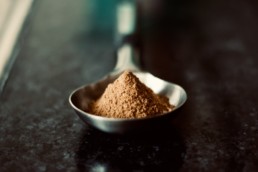
Until the turn of the century, most new treatments were primarily tested on men. As a result, therapies found to be highly effective for managing certain conditions in men were not at all helpful when used with women.
Today, that is changing, and women are better-represented in clinical trials to ensure western treatments are customized for the unique characteristics of female bodies. However, in eastern cultures, this has never been an issue. Certain traditional therapies have always differentiated between the needs of females and males.
Traditional Chinese medicine has been practiced for more than 2,000 years, and every treatment is tailored to the specific needs of individual bodies. For example, Dong Quai Root has special properties that contribute to the health and well-being of women. This herb still plays an important role in the alternative and supportive therapies available today.
Dong Quai Root Uses
In most cases, you will have no trouble identifying dong quai root as an ingredient in supplements and alternative treatments. It is simply listed as Dong Quai. However, you may also come across references to Chinese Angelica, Dang Gui, Tang Kuei, Tan Kue, and Female Ginseng. These are other names for Dong Quai Root.
This herb has warming properties, and practitioners of traditional Chinese medicine rely on it to nourish the health of the body’s blood systems. It is particularly effective in relieving discomfort and symptoms associated with menstruation and menopause, so it is regularly included in therapies designed for conditions affecting women.
Your practitioner may recommend Dong Quai Root if you are experiencing menstrual cramps, chills, hot flashes, mood changes, sleep issues, irregular periods, idiopathic infertility, and similar. For some women, it is effective in transforming dry skin and eyes and dull complexions, and it treats general feelings of weakness.
Dong Quai Root may also be used in both men and women for universal symptoms like joint pain, anemia, ulcers, and constipation.
Some research has shown that Dong Quai Root may benefit patients in treatment for certain types of cancer, however those studies are not yet complete.
Dong Quai Root Side Effects
While Dong Quai Root has been used for centuries to manage certain conditions, that doesn’t mean it is completely without side effects or right for everyone.
This herb shouldn’t be used by women who are pregnant or breastfeeding, and it is not recommended for those with an elevated risk of or history of hormone-sensitive cancers.
Dong Quai Root may increase the body’s estrogen levels, so this is of particular concern for women at risk of some forms of breast cancer.
Other side effects that have been noted include increased sensitivity to sunlight. Women have experienced swelling, redness, and itching in their eyes or on their skin after sun exposure during Dong Quai Root therapies.
This herb may thin the blood, so excessive bleeding could become a problem. Your practitioner will also watch for changes in your blood pressure, as some women have developed high blood pressure while taking Dong Quai Root.
Be sure to report any instances of fever, and be aware of the potential for digestive upsets and loose bowels.
As with all herbal supplements, speak with your physician before adding Dong Quai Root to your wellness regimen, and contact your provider if you notice any side effects. Dong Quai is a powerful therapy that offers substantial benefits, but it’s not right for every woman.
Dong Quai Root Dosage
Practitioners trained in traditional Chinese medicine typically create customized herbal combinations to treat your specific condition and resulting symptoms.
When you consult one of these experts, the dosage will be tailored to your personal health situation. If you choose to try Dong Quai Root therapy on your own after speaking with your physician, it is important to treat the herb with the same care and respect as other types of medication.
First, purchase Dong Quai Root from a reputable provider. There isn’t much oversight of the herbal supplement industry, and some products do not contain the quantity or quality of herb advertised on the packaging.
You can research manufacturers and distributors of Dong Quai Root through programs sponsored by ConsumerLab.com, NSF International Dietary Supplement Certification, and the US Pharmacopeia Dietary Supplement Verification Program.
These organizations offer independent testing of many herbal supplements on the market today. There is also a comprehensive database of dietary supplements available through the US National Institute of Health.
Second, follow the packaging instructions exactly. You may even wish to start with a smaller dose and work up to the recommended therapeutic level, so you can carefully monitor any side effects resulting from the addition of Dong Quai Root to your diet.
Each manufacturer’s instructions will be different, depending on the concentration of Dong Quai Root and whether you are using a tea, pill, capsule, or tincture to ingest the herb.
In general, you can expect the recommended dosage to be between 2,000 and 4,000 mg per day.
Traditional Chinese medicine has always relied on teas to deliver herbal therapies. Dong Quai Root tea is still recommended frequently, and it is available through a variety of reputable sources. These teas often include a combination of complementary herbs intended to support the overall health and well-being of women.
Dong Quai Root: The Female Ginseng
Dong Quai Root is an herb with a long history in traditional Chinese medicine, and it has been shown to support the unique needs of a woman’s body.
It is particularly helpful in relieving discomfort associated with menstruation and menopause, and it is often used to warm the blood and invigorate the body when women are feeling tired, weak, and fragile.
Dong Quai Root may affect estrogen levels, so it isn’t right for everyone. Avoid this herb if you are pregnant or breastfeeding, and choose an alternative if you are at increased risk of certain hormone-sensitive cancers.
What’s Next?
About the author

